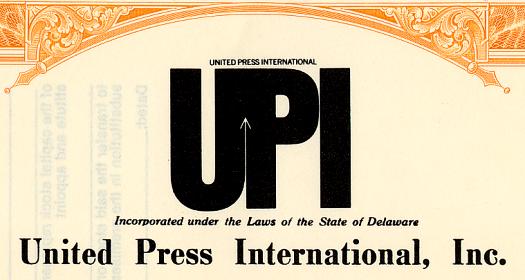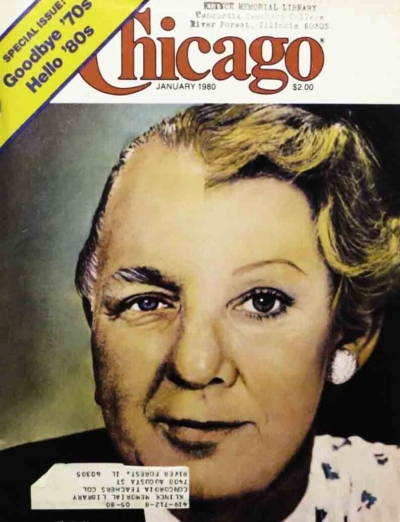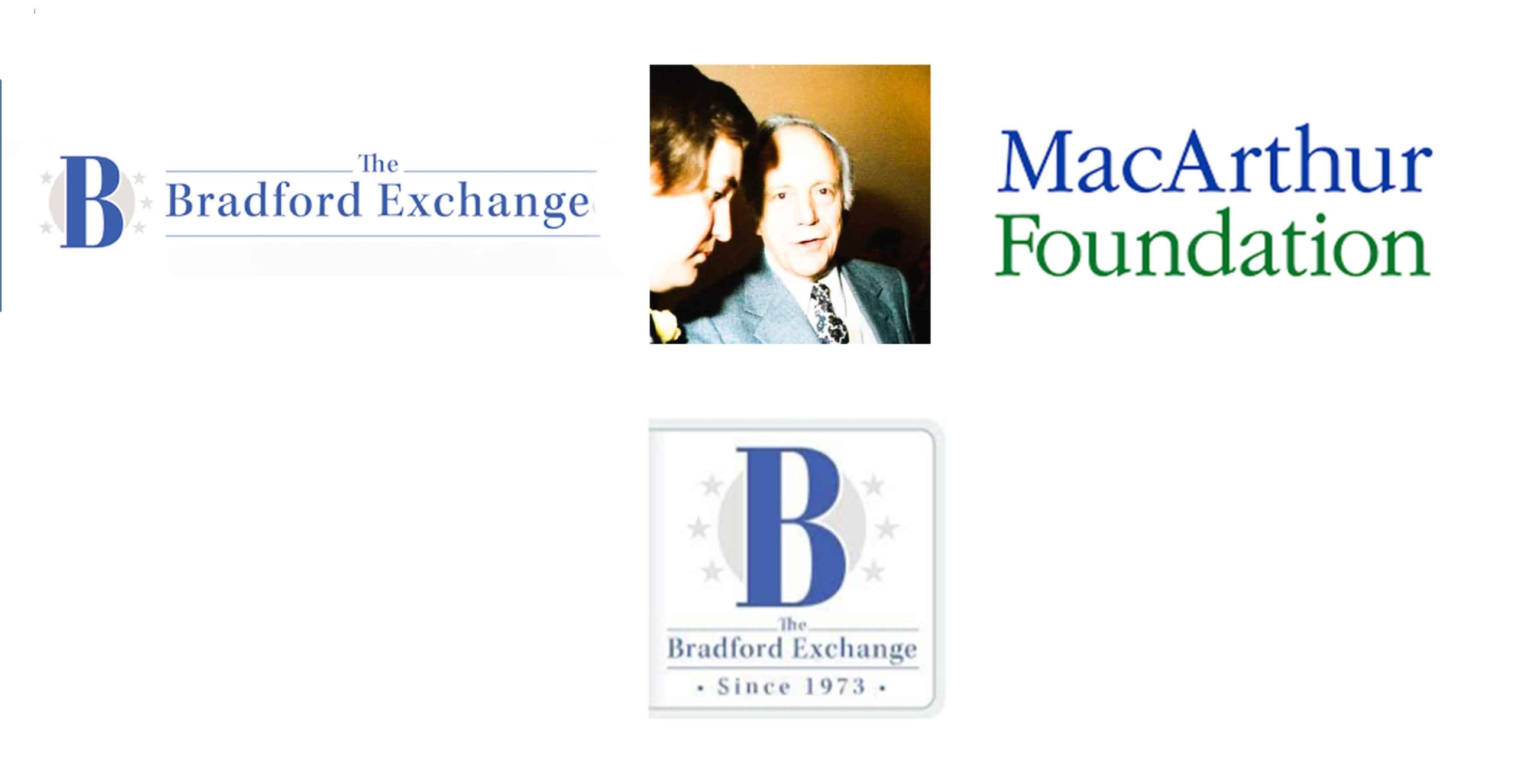When his father had died at the age of 81 in 1978, most of his wealth had been left to the Foundation in the form of his sole ownership of the Bankers Life & Casualty Co. His longtime attorney, William T. Kirby, filed the incorporation papers for the Foundation in 1970 and later served as an officer and longtime director.
I knew a little bit about Kirby, having met his daughter Cathy when both of us were attending the University of Chicago Law School. When I asked her recently about her father’s hiring by John D. MacArthur and what his long relationship with MacArthur was like, she recalled that Paul Doolan, the Bankers Life house counsel, had first met Kirby when they were young and both had worked at the same summer resort in Lake County, Illinois.
Kirby later became a well-known attorney nationally for successfully representing carmaker Preston Tucker in a celebrated 1950 lawsuit. The Securities and Exchange Commission had sued Tucker for fraud in raising money for his Tucker Corporation. Then later in the 1960s, when MacArthur needed a lawyer to handle a legal question for Bankers, Doolan recommended Kirby. Doolan thought Kirby would be an economical hire because he had recently researched similar issues when he prevailed against Albert E. Jenner, Jr., another prominent Chicago attorney, in an Illinois Supreme Court case involving similar questions. Kirby was hired, but what cemented the long-term relationship with MacArthur was the fact that his bill for services rendered was unexpectedly modest, just as Doolan had predicted.
As his daughter described MacArthur’s reaction, “When Dad sent John a low bill, he called, amazed, and asked if that was really all he wanted. He won over John by his cheapness.” MacArthur was indeed a notorious skinflint. The Bankers Life headquarters offices had expanded into an older low-rise apartment building on Lawrence Avenue on Chicago’s northwest side. When the building’s apartments were converted into offices, the kitchens and bathrooms were left intact to save the expense of removing them.
Oddly enough, MacArthur was not the only billionaire to ever make money by focusing on plumbing. Another wealthy Kirby client was A.N. Pritzker. His billionaire grandson, J.B. Pritzker, elected Illinois governor in 2018, tried an approach opposite to MacArthur’s. During his campaign, it was revealed that, to expand his residential meeting space, J.B. had paid $3.7 million to buy an adjacent house on Chicago’s tony Astor Street. By removing the house’s toilets, for a time he was saving over $300,000 a year in real estate taxes by claiming the building was “uninhabitable.”
With John MacArthur’s strong desire to keep his estate from being largely consumed by the 70% income tax prevailing in the 1970s, Kirby’s recommended option of leaving the bulk of his estate to the Foundation prevailed.
Rod’s son, John R. “Rick” MacArthur, longtime publisher of Harper’s Magazine, talked about his family’s relationship with his grandfather in a 2003 interview with his alma mater’s journal Columbia College Today. He explained he had grown up believing his family would inherit nothing:
MacArthur says he believed it when his grandfather “announced he was disinheriting us at an early age. My father told us, seriously, ‘Do not expect to get a dime from him. You’re going to have to work.’ They didn’t get along, even though my father worked for him for a long time.”
According to The Eccentric Billionaire, a 2008 biography of John D. MacArthur by Nancy Kriplen, this was not the case prior to the Foundation’s organization in 1970. Kriplen writes that before that time MacArthur’s earlier will left half of his estate to his wife Catherine, with the second half split between his children from his first marriage, Rod and Virginia. In the book, Kriplen also describes William Kirby’s role in pointing out to Mac Arthur that this structure was a disaster from a tax and estate planning perspective, with most of his accumulated wealth going to pay taxes. A corollary of this prior structure was that applicable taxes could only be paid through the prompt sale or break up of Bankers Life & Casualty, the enterprise that was MacArthur’s life’s work.
Kirby’s daughter added that her father had urged MacArthur to not completely disinherit his children Rod and Virginia. “He always told us that he had to insist that John leave something to his children.” And indeed, though modest compared to the Foundation’s bequest, both children ended up with substantial legacies.
The Foundation is mostly known for its annual program of giving large cash grants to creative individuals with no strings attached. The idea behind the program came from a noted internist and heart specialist at Tulane University, Dr. George Burch. While those receiving these grants are formally known as MacArthur Fellows, the media consistently refers to the stipends as the “genius grants.”
In 1989, Kirby gave a lot of credit to Rod MacArthur as he explained how the program came into being in the early days of the Foundation with John D. MacArthur newly deceased:
Immediately after his death, our small Foundation Board discussed possible programs, and I told them of Dr. George Burch’s idea. … From the very beginning, Rod MacArthur was enthusiastic about the idea and supported it vigorously. No doubt about it, I am happy to testify, Rod MacArthur was the chief implementer of the details of the Fellows Program, and its strongest supporter throughout the remainder of his life. I don’t mean the other Directors were not fully supportive, but the dynamism and dedication burned brightest in Rod. One can say, in all honesty, the MacArthur Fellows Program, as it stands today and as all of you have benefited from it, is a tribute to both George Burch and J. Roderick MacArthur. Rod, as you know, died in 1984.
This is certainly my recollection as well, as I remember many meetings in Rod MacArthur’s open office at The Bradford Exchange as he consulted with a disparate group about the best way to structure the program and the Foundation’s possible bailout of Harper’s Magazine. The people he met with included Ken Hope, his assistant and later the first director of the MacArthur Fellows Program, as well as a number of academics and administrative experts. I also recall being detailed one day to pick up Gloria Steinem and a Ms. magazine colleague at O’Hare Airport. I drove them back to meet with Rod and sat in on the discussion. I remember they seemed more interested in soliciting grant money than pondering the Foundation’s issues. They made it perfectly clear they had important and valuable ideas about possibly sharing details of favorable tax arrangements they were familiar with if grant money was on the table for Ms.
The senior MacArthur had two children with his first wife, Louise, Rod and his sister, Virginia. He had separated from Louise when Rod was six and later married his then-secretary, Catherine T. Hyland.
The second Mrs. MacArthur was closely involved in the growth of his insurance empire and real estate investments. For many years towards the end of his life, MacArthur conducted his widespread business affairs from a booth in the Colonnades Beach Hotel coffee shop in Palm Beach Shores, Florida. At his death, he owned more than 100,000 acres of prime real estate in Florida, much of it in Palm Beach County.
John MacArthur served in the U.S. Navy and Canadian Royal Air Force in World War I. He then had started working in an insurance company owned by his brother Alfred. A gifted salesman, during the Depression he had bought a failing insurance company. He later grew this into his estate’s main asset, Bankers Life and Casualty Co. Over the decades that followed, with multiple acquisitions and shrewd real estate investments, he had turned Bankers Life into a successful and enormous insurance giant.
In the course of my interviews with both Rod and Kevin, I was treated to their thrilling tale of how Rod had started the company while working for his father at Bankers Life. When the little collector plate company began to take off, Rod had to wrest control of the enterprise away from his father.
The struggle had included hijacking plate inventory from a warehouse and, in the telling, ultimately freeing Rod in his middle years from decades of subordination and tight control by his father.
While the story supposedly had a happy ending, with father and son fully reconciled before his death, I had my doubts. It smacked of being a better tale for public consumption than the likely reality. Rod’s stories of his life working for his father were mostly focused on his having consistently achieved business breakthroughs that went unrecognized and unrewarded by his father. Rod MacArthur’s struggles with the Foundation’s initial board of directors loomed large following his father’s death, and it certainly appeared a major dispute over the management of the Foundation would be unfolding.
In a way, Rod’s later blood feud with his father’s business associates on the Foundation’s board of directors was nothing but a continuation of the rancor between father and son that had persisted through the decades that Rod had worked in his father’s Citizens Bank and Macmart businesses as well as Bankers Life itself.
William Hoffman’s book The Stockholder, a 1969 unauthorized biography of John MacArthur, paints a picture of a very warped father-son relationship. When the Foundation later came to publish a history of the MacArthur family, The MacArthur Heritage, it dismissed Hoffman’s work as “a sensationalized version of John’s life [that] should be read more as entertainment than as historical fact.” While some of Hoffman’s reconstructed dialogs in the book seem a stretch, for me this account has a ring of truth to it:
John considered it a personal affront that Roderick’s interests ran in a different direction from his. He put his son to work for Bankers Life, then took pleasure in publicly insulting him at every opportunity. Often, in front of other employees, John would relate tasteless tales of Roderick’s ineptitude. Many times…John would leave his office to scream down the corridor: “Hey, you worthless little son-of-a-bitch, get your lazy ass up here.”
Hoffman had apparently spent time in the Banker Life organization as editor of one of its publications. This would have put him in a position to be privy to at least some of the internal gossip of the day. He offers this account of Rod in his middle years:
Roderick’s middle-age has been spent bouncing from psychiatrist to psychiatrist, joining peace organizations, drinking, and perhaps trying to commit suicide. Once he plunged into a swimming pool and had to be bailed out. Another time he ran his car headlong into a tree on the PGA golf course, spent half a year recuperating. Roderick still works at Bankers, though his duties are vague, and is either feared or scorned by fellow employees. Those who know only that he’s the owner’s son believe he has great power over their careers and accord him a feigned deference. Others, usually higher-ups, know the father’s feelings about the son and treat him the way their boss would want.
Hoffman, unlike Kriplen, offers no sources or footnotes for the reader to consult and I must say I never saw any behavior akin to this in my time working with Rod at Bradford. Thus, some or all of this may properly fall outside the factual realm and into the categories of made up, hearsay or rumor.
The last chapter of Hoffman’s book is somewhat different in that it purports to recount a direct conversation the author had with John MacArthur in 1968 in the coffee shop of the Colonnades hotel. In his later years this is where the senior MacArthur lived and worked. Hoffman later told people he had lived for several weeks at the Colonnades while researching his book. In the exchange Hoffman writes that he asked John MacArthur about his son Rod:
“What about Rod?”
“You talk to him?”
“Yes.”
“Damn. Is it necessary to dredge up unpleasantness? Why not just tell about what I’ve done? That’s how people measure a man and that’s what they want to know. Hell, though, you’re a sensitive fellow. I’ll level with you and let you decide. Okay, Rod’s disappointment to me. I had great plans for him. Bankers could have been his. And all of the other things. But if you talked to him you know that’s impossible. He’s got no sense at all. Would rather waste his time reading and attending classes. Christ, he’s forty-eight years old. Forty-eight years old and he’s going to class. Shit. I attended the school of hard knocks. But I blame myself. I should have taken him by the neck and made him do what was right. Now it’s too late. He’s a drinker and he’s messed up mentally. It’s the thing that makes me saddest. It would be nice to know as I grow older that my own boy would take over what I started. So—things aren’t as sweet as they seem.”









